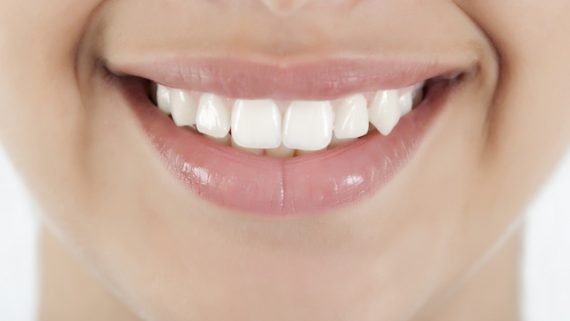 It’s summer, time to hit the beach or tanning salon for that perfect tan. Few things are more satisfying than your friends noticing how much time you spent on your tan and complimenting you on your luscious bronze glow. Why does something like our skin tone matter so much? Is it because a pale or an untanned skin triggers images of nerds who spend their entire summer indoors playing video games?
It’s summer, time to hit the beach or tanning salon for that perfect tan. Few things are more satisfying than your friends noticing how much time you spent on your tan and complimenting you on your luscious bronze glow. Why does something like our skin tone matter so much? Is it because a pale or an untanned skin triggers images of nerds who spend their entire summer indoors playing video games?
Dark skin vs Fair skin
In the American society, we associate tans with sexy supermodels, athletes and movie icons. Having a great tan is often considered a symbol of good health. A tanned skin is a way to identify our social hierarchy, kind of like the different insignias to differentiate between military ranks. Sporting a tan shows that you have the time and money to lay around all day in the sun instead of being stuck in the office all day trying to pay off the bills. However, in the Chinese culture, the exact opposite is true. Here, the fair skinned is the prized possession. Tans are associated with those who must labor all day under the hot sun.
How Fast Does Hair Grow?
Hair on the scalp grows about 0.3 to 0.4 millimeter per day or about 6 inches per year. Unlike other mammals, human hair growth and shedding is random and not seasonal or cyclical.
What Can Hurt Your Hair?
- Excessive sun exposure
- Exposure to sea water or chlorine in the swimming pool
- Use of curling or hair straightening irons
- Excessive heat when blow drying
- Excessive and hard brushing
- Chemicals in styling products.
- Chemicals for hair coloring, straightening, and permanent waving
What Are “Split Ends”?
Split ends are, literally, splitting of hairs at the ends. It is typically caused by over-use of styling chemicals, frequent or excessive rubbing while washing the hair. Although split ends cannot be completely prevented, routine haircuts and careful washing/styling habits will help improve the appearance of your hair.
What Happens When I Dye My Hair?
The hair shaft consists of layers of structured proteins (keratins) and protective oils. In order for hair color to be changed, the natural oils have to be partially removed by a bleaching agent and the keratin layers have to be “softened,” so that the coloring ag
Two Main Types of Contact Lenses:
Contact lenses are tiny discs of plastic placed on the surface of the eye, as a substitute for wearing glasses. Contact lenses are made of different types of plastics, but they fall into two main categories:
- Soft contact lenses are gel-like and conform to the shape of your eye. They are very comfortable and are hardly noticeable once the lenses are placed on the eye. The replacement schedule ranges from daily to monthly disposable, and some are designed for extended wear overnight.
- Gas permeable (GP) contact lenses are more rigid and smaller in diameter. Compared to soft lenses, GP lenses are more durable, allow more oxygen to enter your eyes, and can correct certain vision problems. However, they may be less comfortable initially and take a longer time to get used to.
Advantages of Contact Lenses:
- They move with your eye, allowing a natural field of vision.
- There are no frames or reflections to block your view.
- They don’t fog up.
- They do not get in the way of your activities.
- You can wear sunglasses over them.
Posted in General Health, Health Topics by CCHRC | Tags: Contact Lenses, dry eyes, eye, Gas permeable (GP) contact lenses, glasses, hydrogen peroxide solution, Soft contact lenses
What Is Acne?
Acne is also known as pimples, blemishes, and zits. It is a skin condition that typically appears on the face, neck, chest, back, and shoulders, which are areas of your skin that have a large number of oil glands. Formation of acne is caused by the buildup of oil, dead skin cells, and bacteria in the hair follicles (skin pores). On a daily basis, your skin sheds dead cells and produces oil, and the rate at which this happens is affected by hormones. Acne occurs when these natural processes are off-balance.
Who Gets Acne?
Anyone! Over 90% of teenagers develop acne, and it is estimated that about 25% adults between the ages of 25-45 experience acne as well. As mentioned before, acne formation is related to hormonal levels, which fluctuate throughout your life. Acne caused by hormonal imbalance is especially common among:
- Teenagers, both boys and girls.
- Women and girls, 2-7 days before their periods.
- Pregnant women.
- People using certain medications that affect hormonal levels.
Treatment for Acne:
A variety of over-the-counter skin care products are available to treat acne. Most of them include salicylic acid or benzoyl peroxide as their active ingredient. They help to reduce oil production, speed up skin ce
What Are Cavities?
Cavities are structural damages in your teeth due to tooth decay. At any given time, there are many bacteria present in the mouth. These bacteria convert the sugar from food debris into acids, which attack the outer coating of the tooth (the enamel) and cause tooth decay. A combination of factors contributes to formation of cavities, including not cleaning your teeth well and frequent snacking or drinking of sugary beverages. Symptoms include visible pits in the teeth and toothache after consuming sweet, hot, or cold foods and drinks. If cavities are not treated, they can lead to large holes on the tooth and complications such as severe toothache, infection, and tooth loss.
Who Gets Cavities?
Anyone can get cavities, from infants to older adults. Cavities and tooth decay are one of the most common health problems around the world. They are especially common among children and young adults who do not pay attention to oral hygiene. Individuals with gum diseases, such as receding gums causing exposure of roots




